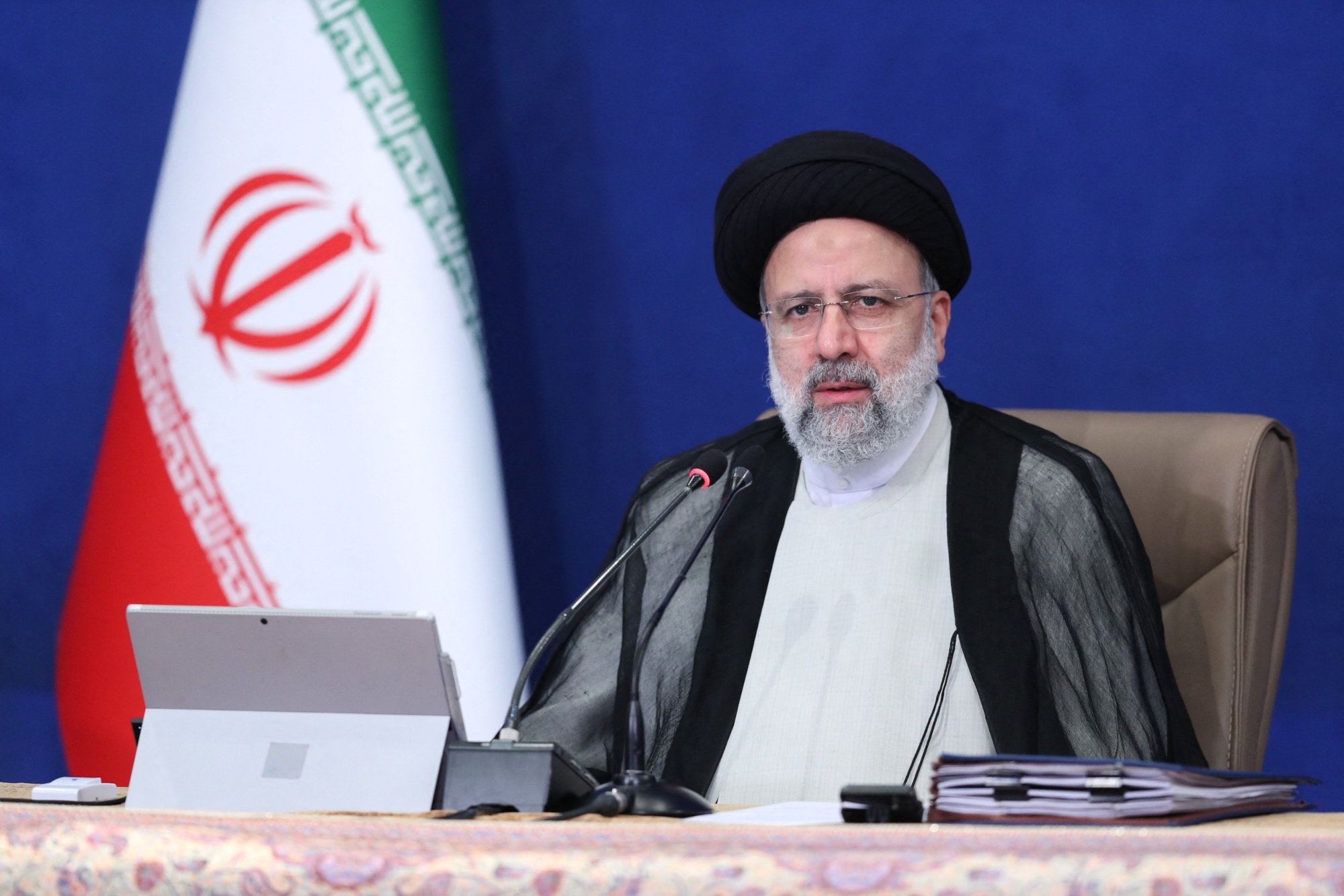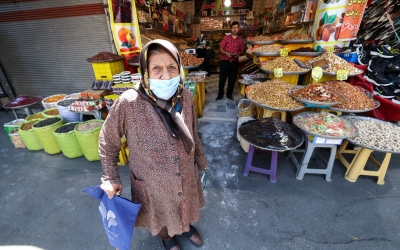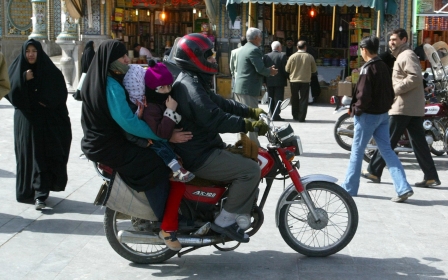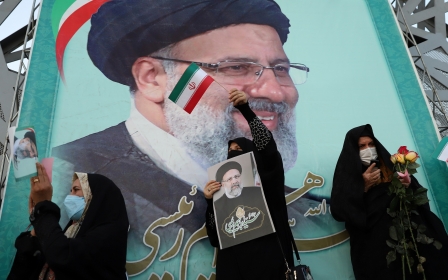Iranian press review: Raisi vows to 'make US regret' sanctions against Iran

Tehran ramps up rhetoric against Washington
Iran's President Ebrahim Raisi said that Tehran and its allies would make the United States “regret” its policies against Iran, during a meeting with the chairman of Belarus’ house of representatives, Vladimir Andreichenko.
"The US is wrong to think it can deter other nations' developments by using sanctions," Iran's government official website quoted the hardline leader as saying. "Iran, collaborating with allied countries, will actively continue the development path, and with this move we will make the US regret it.”
Raisi's comment came as negotiations between Washington and Tehran over a return to the 2015 nuclear deal reached a dead end, while talks of a prisoner swap between the two countries collapsed.
Meanwhile, hardline daily newspaper Kayhan, which staunchly supported Raisi in the June presidential election, threatened that Iran would no longer remain silent in response to attacks on its interests.
New MEE newsletter: Jerusalem Dispatch
Sign up to get the latest insights and analysis on Israel-Palestine, alongside Turkey Unpacked and other MEE newsletters
"Iran will not leave violations with no response," it said in an editorial. "[Iran] will respond to attacks with counterattacks more destructive and discouraging [than the attacks themselves]."
Fifth Covid-19 wave creates coffin shortage
Amid the fifth wave of the Covid-19 pandemic in Iran, the country’s second-largest city, Mashhad, faced coffin and ambulance shortages, Arman daily reported.
Mashhad Governor Mohammad Reza Hashemi told local media that a sharp increase in the number of deaths in the city had caused the shortage.
While Muslims are not typically buried with coffins, the bodies of deceased are usually carried in open caskets during funerals, before burial.
While Hashemi denied having made such comments, after they were widely reported by Farsi language news outlets, Arman reported that the Covid-19 crisis in Mashhad had become catastrophic.
"Even before the denial of this official [Hashemi], Mashhad's legislators had urged the president in a letter to ban all travel to Mashhad," the daily wrote.
Mashhad hosts the most important Shia Muslim shrine inside Iran. Imam Reza, the eighth Shia imam, is buried in this city, and every year millions of pilgrims visit his shrine. Despite the high number of deaths in recent weeks, the site has remained open to pilgrims.
Meanwhile, an image that went viral from the provincial capital, Qazvin, showed Covid-19 patients lying on a hospital floor, hooked up to oxygen tanks. A video from the northern city of Babol showed people receiving IV drips in their cars parked on the streets, due to a nationwide shortage of hospital beds.
As of Wednesday, Iran's coronavirus death toll had reached 95,647, health officials said.
Iran warns Tel Aviv after Oman tanker attack
Following a deadly attack on an Israeli-managed oil tanker off Oman, the war of words has escalated between Tehran and Tel Aviv, with Israel threatening Iran with military action, and Iran stressing its willingness to respond.
The US, the UK, Israel and Romania blamed Iran for the attack on the Mercer Street vessel that left two people dead. However, Iran has repeatedly denied any involvement in the strike.
Nonetheless, Iranian foreign ministry spokesman Saeed Khatibzadeh threatened that Iran's military forces would respond to any attack against the country.
"ANY foolish act against Iran will be met with a DECISIVE response. Don't test us," Khatibzadeh wrote on Twitter on 5 August.
General Amir Ali Hajizadeh, head of Iran's Islamic Revolutionary Guard Corps' (IRGC) airspace division, took a similar stance, saying: "Iran has been tested before and there is no need for a new test, but if they like, they can test Iran again.
"We have the power, and the will to use our power to respond," he was quoted by Iran's official news agency IRNA as saying, referring to western countries and Israel. "They know what kind of response they will face.”
Iran-Afghanistan border reopens
After a six-day closure, Iran reopened the Milak border crossing with Afghanistan, said Iran customs administration spokesman Rohollah Latifi.
"The news about a total halt in trade between Iran and Afghanistan is false news, most probably spread by the warring sides inside Afghanistan," Latifi was quoted by Tasnim news agency as saying.
Despite Latifi's claims about the renewal of trade between the two countries, he added that Iranian trucks carrying fuel and goods to Afghanistan could only pass the Iranian side of the border, and had to transfer the goods onto Afghan trucks on the Afghan side.
Meanwhile, Iranian outlets warned that an influx of new Afghan immigrants would hit Iran, following the Taliban's rapid advances in vast territories in Afghanistan. Since Friday, Taliban fighters have captured seven provincial capitals, as well as border crossings with Iran, Tajikistan, Uzbekistan and Pakistan.
So far, Iran has kept its borders closed to new Afghan refugees, but outgoing Health Minister Saeed Namaki has suggested setting up refugee camps at the border with Afghanistan to control the influx of refugees.
* Iranian press review is a digest of reports that are not independently verified as accurate by Middle East Eye.
Middle East Eye delivers independent and unrivalled coverage and analysis of the Middle East, North Africa and beyond. To learn more about republishing this content and the associated fees, please fill out this form. More about MEE can be found here.





